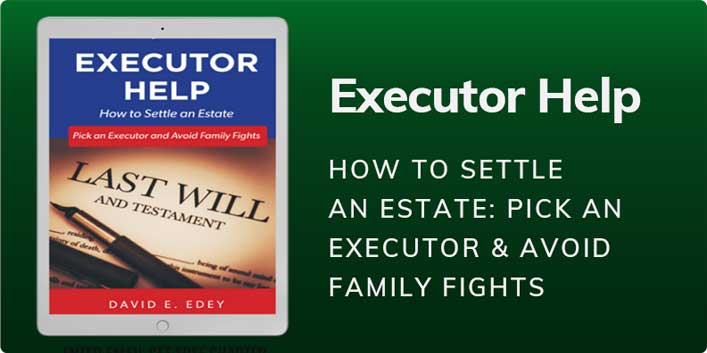- Home
- Becoming executor of estate
- Difference Between the Executor and Trustee
What's The Difference Between The Executor and Trustee?
Before explaining the difference between the executor and trustee, I think it's important to define what it means to be an executor and a trustee.
An executor is a person or institution appointed by the deceased individual (the testator) in their will to manage their estate after they pass away.
This involves tasks such as gathering the deceased's assets, paying their debts and taxes, and distributing the remaining assets to the beneficiaries named in the will.
A trustee, on the other hand, is a person or institution appointed to manage a trust that has been created either during the testator's lifetime or after their death.
A trust is a legal arrangement where a trustee manages assets for the benefit of a third party (the beneficiary).
It's important to understand the differences between an executor and a trustee, as each role has distinct responsibilities and legal requirements.
Sarah's Estate Plan
Sarah is a widow with two adult children and a significant estate that includes multiple properties, bank accounts, and investments.
In her estate plan, Sarah appoints her oldest child as the executor of her will and a corporate trustee to manage a trust that will provide ongoing support for her younger child.
The executor is responsible for managing the distribution of Sarah's assets to her beneficiaries according to the instructions outlined in her will, while the trustee is responsible for managing the assets in the trust for the benefit of her younger child.

Executor vs Trustee: Key Differences
Role and Responsibility
While both roles involve managing assets, the responsibilities of an executor and a trustee differ significantly.
An executor must manage the assets of the deceased individual and make sure their wishes, as expressed in their will, are carried out.
A trustee, is responsible for managing assets in a trust for the benefit of the trust's beneficiaries.
Timeframe of Appointment
Another key difference is the timeframe of the appointment. An executor's role is typically time-limited and ends once all the taxes and debts have been paid and the deceased individual's assets have been distributed to the beneficiaries.
A trustee, on the other hand, may have an ongoing role in managing the trust's assets, depending on the terms of the trust.
Types of Assets Managed
The assets managed by an executor and a trustee also differ. An executor is responsible for managing all of the assets owned by the deceased individual, including property, bank accounts, and personal belongings, until the estate is deemed closed.
A trustee, on the other hand, is responsible for managing only the assets held in the trust.
Distribution of Assets
Another key difference is how assets are distributed. An executor is responsible for distributing the assets according to the instructions outlined in the deceased individual's will.
A trustee, on the other hand, is responsible for managing the assets in the trust
John's Trust
John is a successful businessman who has created a trust to hold his assets for the benefit of his children and grandchildren. In his trust,
John appoints a corporate trustee to manage the assets in the trust and distribute them to his beneficiaries over time.
Unlike an executor, the trustee has ongoing responsibility for managing the assets in the trust and ensuring that they are used in accordance with John's wishes.

The Difference Between the Executor and Trustee: 5 FAQS
Can the same person be an executor and a trustee?
Yes, it is possible for the same person to fulfill both roles, although it's important to carefully consider whether this is the best option for your specific situation.
Is it necessary to appoint both an executor and a trustee?
It's not always necessary to appoint both an executor and a trustee, as it depends on the specific circumstances of your estate plan. However, if you have created a trust, it's generally recommended to appoint a trustee to manage the assets held in the trust.
Can a trustee also be a beneficiary?
Yes, it is possible for a trustee to also be a beneficiary of the trust, although this can create potential conflicts of interest and should be carefully considered.
How do I choose the right executor or trustee for my estate plan?
Choosing the right executor or trustee involves evaluating their qualifications and experience, considering the complexity of your estate, and discussing their responsibilities with them before making a final decision.
What happens if I don't appoint an executor or trustee?
If you don't appoint an executor or trustee, the court will appoint someone to manage your estate or trust, which can result in delays and additional expenses.
It's important to carefully consider your options and make a clear plan for the management of your assets after your death.
Mary's Simple Estate
Mary is a single retiree with a small estate that includes a home and a few bank accounts.
In her estate plan, Mary appoints her sister as the executor of her will to manage the distribution of her assets to her nieces and nephews.
Since Mary's estate is relatively simple, she does not create a trust or appoint a trustee.
In this case, the executor is responsible for managing the entire estate and ensuring that Mary's wishes are carried out.
- Home
- Becoming executor of estate
- Difference Between the Executor and Trustee






